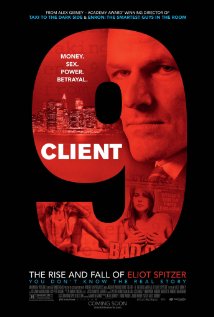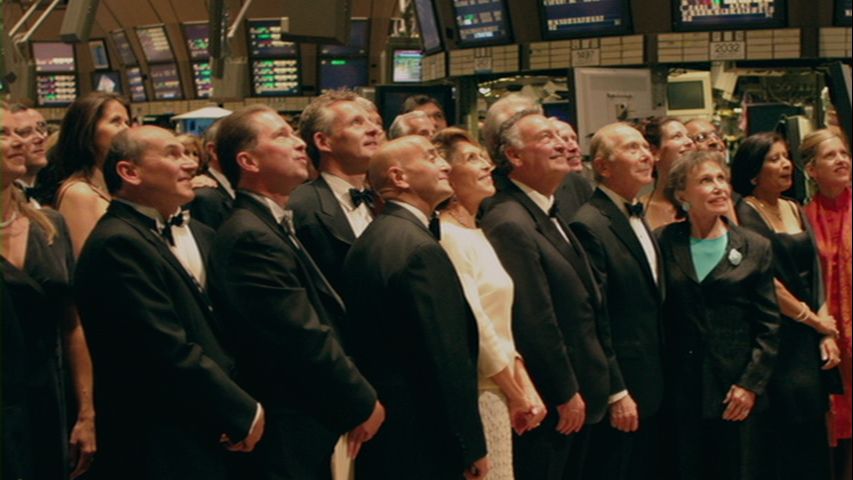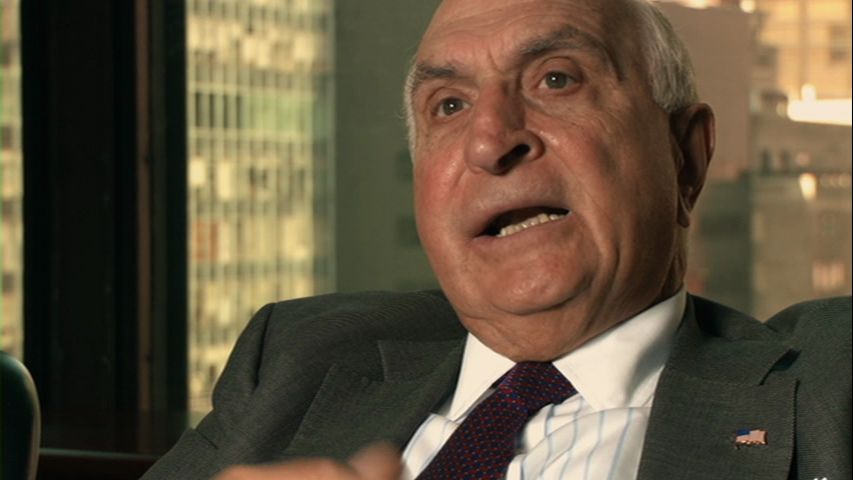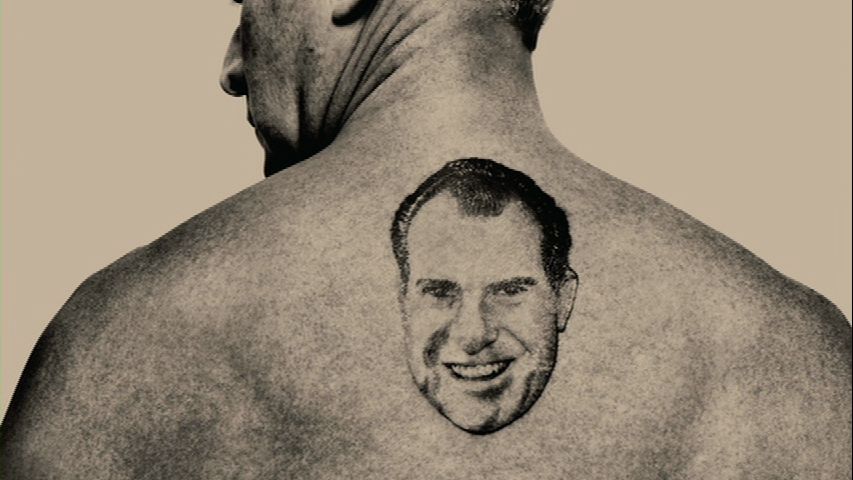
 BUY FROM AMAZON: CLICK HERE!
BUY FROM AMAZON: CLICK HERE!
STUDIO: Magnolia Home Entertainment
MSRP: $26.98
RATED: R
RUNNING TIME: 118 minutes
SPECIAL FEATURES:
- Commentary with Writer/Director Alex Gibney
- Interview with Writer/Director Alex Gibney
- Extended Interviews
- Deleted Scenes
- HDNet: A Look at Client 9
The Pitch
Document the career of Eliot Spitzer from his days targeting the fatcats of Wall Street and his service as Governor of New York to his days of wearing knee-high socks (allegedly) while having sex with female escorts.
The Humans
Writer/Director Alex Gibney (Taxi to the Dark Side, Enron: The Smartest Guys in the Room)
Eliot Spitzer
The Nutshell
Eliot Spitzer, in his service as attorney general of New York, did a lot to combat the various spots of corruption on Wall Street, way before the economic downturn. Some would say he could see the writing on the wall where the salaries of big-wig executives on Wall Street were concerned and did everything he could to target and make sure he could reduce their sometimes illegitimate but always outrageous annual salaries and retirement packages. In doing this he gained many enemies, and in some way these enemies would be responsible for his eventual downfall as a Governor involved in a high-profile prostitution ring.

"It's a bird!....it's a plane!....no!....it's.....John Travolta? What's he doing here?"
The Lowdown
It seems as if every time you turn around, there’s another politician (high-profile or not…then again, they’re ALL high-profile these days) involved in a sex scandal. The authority and power that comes to those who seek and eventually gain office is innumerable and the temptations that the positions of power offer is something many men succumb to. Eliot Spitzer is no different than most of those guys, except he decided to resign, even against the wishes of his own wife who thought he should try to stay on. As is explored in the documentary, there were several politicians in the last few years–not as big as the Governor of New York, but in Washington with the “D.C. Madam” case–that were involved in sexual escapades not involving their wives that stayed on (without pressure to resign from the federal government) despite the scrutiny their misdeeds attracted. Maybe some of them offered an apology and that’s it. The only difference between them and Spitzer, according to the film, is that those men were Republicans and Spitzer was a Democrat. Whether that had anything to do with anything is anyone’s guess, but it’s certainly interesting.

"I have to say, I think I was about 15 years old when I first discovered I could fit a bowling ball inside my nostril."
The film is told mainly through the perspective of Spitzer as he articulates the events surrounding not only his resignation but his entire career. A friend of his referred to him as part of the “lucky sperm club”, being born smart and wealthy. He speaks of his life as a child, having been taught at a young age to challenge authority. One such anecdote he remembers is when he and his father would play Monopoly and his father foreclosed on him in the game. He convinced him to sell real estate in the game for cheap and then wiped him out later in the game, instilling in him the lesson not to trust anyone, not even your own father. This proved a valuable lesson to him in his life, and served as a later of example of companies he went after that got in too deep that needed to be bailed out. It taught him that lawbreakers (namely CEOs) should not get second passes or bailouts because of the attorneys they could afford to hire; he felt they should be treated and prosecuted just like anyone else.

"The hillssssss are aliveeeeee, with the sound of greedddddddddd...."
In his eight-year career as attorney general of New York, Spitzer took on a number of extremely high-profile cases as well as small ones. He investigated violations of insurance and securities laws by AIG, namely chairman and CEO Hank Greenberg, and while charges were later dropped and cases are still outstanding, he left an indelible mark on this man and those like him and is not exactly highly thought of. For these things he was known as the sheriff of Wall Street, taking cases most could not afford to and not afraid to put himself in the line of proverbial fire. He sought to use his platform of public service as attorney general to change the way society worked. He fought for better wages for deliverymen and made upscale restaurants hire more women. He did all these things yet temptation later took over early in his gubernatorial career as he began to lead a double life. The female escort service Emperors Club VIP, of which former founders are interviewed in the film, was a service many renowned athletes, entertainers, and yes, politicians used on a regular basis. Spitzer just happened to be a client, mainly seeing Ashley Dupre’, whose words were used in this film but in an interesting turn (and one i’ve rarely seen in a documentary of this type) was played by an actress.

"I just posted in a talkback, expressing my disgust at our main superheroes being played by British actors. My opinions will be heard, and respected by no one!!!!"
What’s interesting and fascinating about this story is how it came full circle. Those who he made enemies of in big business, these high-powered CEOs, were so scarred by what he had done over the years, that some had hired private investigators to track him because he seemed so “untouchable”. They began to conspire together to find dirt on Spitzer, hiring not only private investigators but a highly-renowned political operative, Roger Stone. He was the country’s most notorious trickster, according to the film, and these men all knew that if Spitzer wasn’t as clean as he made people believe, Stone would find out how and why. Many of his colleagues referred to him as a lunatic. He left threatening voicemails on Spitzer’s father’s answering machine. And if his appearances in the film are any indication, he really is strange. Oh boy, he is. He’s the guy you’d get if you put Donald Trump and Victor Garber in a telepod. He was fired from the Dole Presidential campaign in 1996 because it was revealed that he and his wife had put ads in a newspaper advertising themselves as swingers looking for other couples. But the point is, this phone call he made to Bernard Spitzer, Eliot’s father, in some ways led to Spitzer’s downfall, as it proved there was some sort of investigation being launched on behalf of Spitzer’s enemies. An investigation that began and was fueled as a result of a single wire transfer that Spitzer had made of several thousand dollars that was flagged by the government as “suspicious”. It was all downhill from there.
Inevitably Spitzer was linked to Emperors Club VIP, and female escort Ashley Dupre’, and some believe the only reason this happened is that the FBI was tipped off by one of Spitzer’s enemies. Stone was in a bar when he happened to meet a call girl who had “almost” had a date with Spitzer. And it was this information that was given to the FBI by Stone that lead to Spitzer’s downfall, or so Stone assumes. Either way, one would assess by watching this film or following Spitzer’s story is that his crime, if you could even call it that, is one of “desire”. He explains what he did as an outlet to escape the very confined world he lived in. I don’t think you could come away from this film thinking what Spitzer did was despicable. Maybe you could if you look at it in the sense of betraying his wife and family, but I believe this needs to be filed under “could have been worse”. And I also think that with a lot of these cases, people need to realize that while politicians do have a responsibility to the people to be truthful and honest, some things must come down to being private and personal between a man and his family.

Not the most intimidating prison tat you've ever seen.
It may sound a little too simple, but it’s plainly evident by this film that this would not have happened had Spitzer not been so tough on Wall Street and made so many enemies over the years. His impact on these CEOs was so widely felt that when everything turned to hell and Spitzer decided to resign, the New York Stock Exchange loudly cheered and some men were even seen cracking open bottles of champagne on the trading floor. But you really can’t blame him for being so tough, as he was doing what was in the best interests of the public and really the entire country when he was attacking those CEOs and their $140 million dollar retirement funds. This is an extremely well-made film and while it respectfully explains Spitzer’s downfall and self-imposed shame, it also serves to paint an illuminating portrait of greedy CEOs and businessmen. There’s a strong feeling throughout parts of this film that Spitzer was on his way to becoming our country’s first Jewish President, and while we will never know if that would have been the case, there’s no denying that if people were as proactive as he was on policing big business practices that we might not be in the economic downturn we are currently in.
The Package
Deleted scenes which for the most part examine the reactions that everyone had when they found out about Spitzer’s fall. Some were shocked, others were upset, but Ken Langone was the only one who thanked God. It’s not hard to see that there was no love lost with some of Spitzer’s enemies. An interview with Alex Gibney that really just summarizes what the film already told us. And the commentary by Gibney adds a lot of insight into different parts of the film, speaking about collaborators who knew Spitzer personally and how he shared information with them to help his film.
Rating: 




Out of a Possible 5 Stars